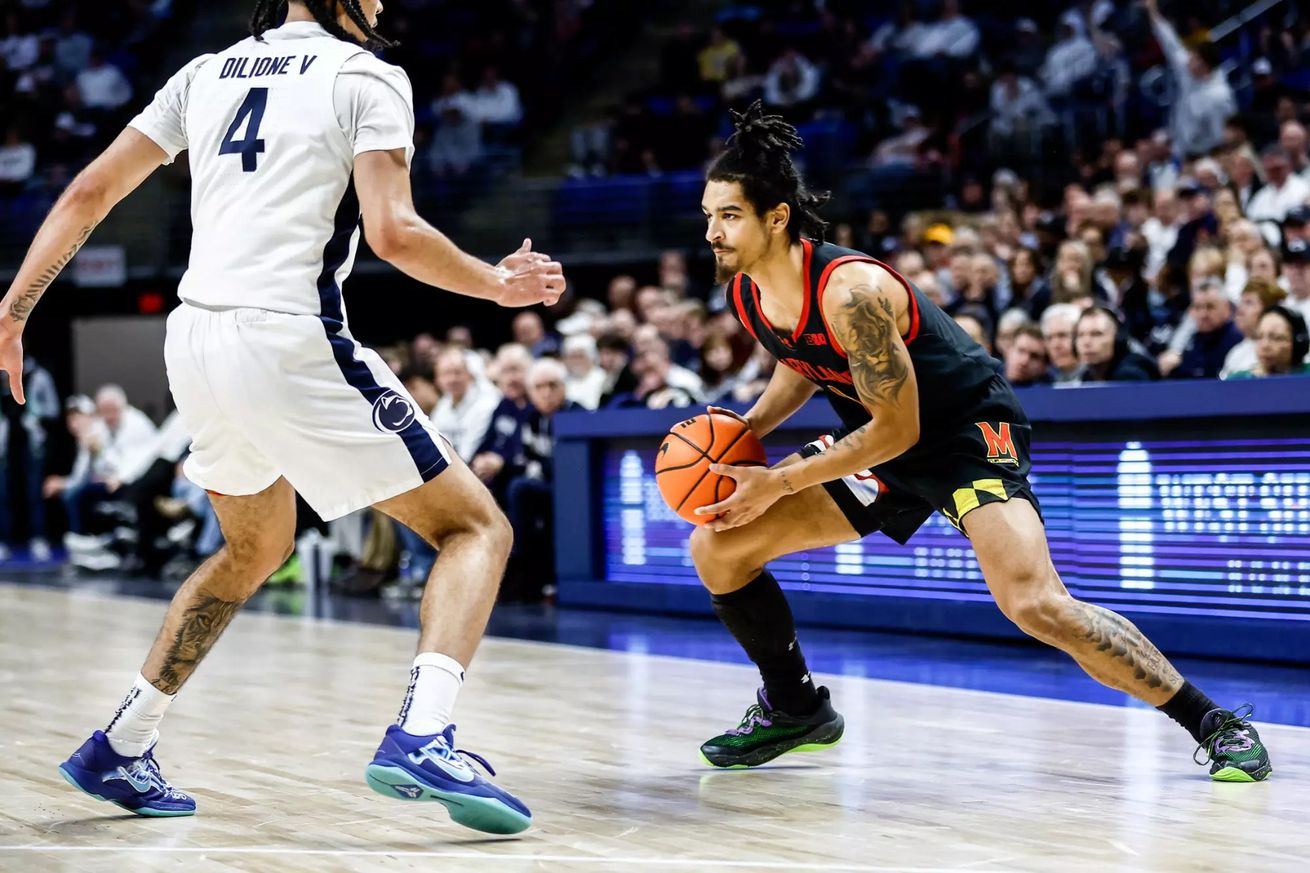
The Terps look to pick up their second ranked road win of the season.
No. 13 Maryland men’s basketball avoided a potentially disastrous late-season skid with its Saturday win over Penn State. Now, it has a chance to build on its new Associated Press poll ranking — tied for the highest of head coach Kevin Willard’s era — and add another marquee victory to its resume Wednesday on the road at No. 17 Michigan.
The Terps’ first ranked road win of the season, over then-No. 17 Illinois on Jan. 24, came with a Tomislav Ivisic-sized asterisk. The Fighting Illini’s 7-foot-1 standout center missed the game with mononucleosis, and Maryland’s big men took advantage. Julian Reese and Derik Queen put up 27 and 25 points, respectively.
In all likelihood, they won’t have the same blessing against the Wolverines. Both teams’ starting lineups are expected to be at full strength Wednesday. The game will tip off at 6:30 p.m. EST and air on Big Ten Network.
No. 17 Michigan Wolverines (22-7, 14-4 Big Ten)
The Wolverines welcome the Terps to Ann Arbor, Michigan, fresh off a demoralizing 93-73 Senior Day loss to Illinois. It was the highest point total Michigan has allowed all season, as six Fighting Illini eclipsed seven points and four scored at least 13. Meanwhile, only graduate center Vladislav Goldin reached double-figures for the Wolverines.
Michigan will end the regular season in the Associated Press top-25 poll, but back-to-back home losses with just a road trip to No. 8 Michigan State left before the Big Ten Tournament isn’t an ideal way to end the season.
First-year head coach Dusty May’s squad is nonetheless talented, as the Wolverines’ ranking shows, and they host the Terps with the benefit of a 13-2 record at Crisler Center this season.
Players to know
Vladislav Goldin, graduate center, 7-foot-1, No. 50 — Goldin, a Russia native, made headlines this past week for a heartfelt reunification with his parents, whom he hadn’t seen in five years, for Senior Day. But don’t let the feel-good story distract from distress he’s inflicted on opponents all season. Goldin leads the Wolverines with 16.1 points per game — shooting a Big Ten-high 64.8% from the field — also contributing 6.4 rebounds and 1.4 blocks per game.
Danny Wolf, junior forward/center, 7-foot-0, No. 1 — Wolf is the other half of Michigan’s towering frontcourt. The Yale transfer is the Big Ten’s leading rebounder (9.7 per game) in his first season in the conference and is second on the Wolverines with 12.4 points per game. Wolf is also a sound offensive facilitator, recording 3.7 assists per game.
“He’s kind of more of a guard,” Reese said of Wolf. “[We have to] guard him more like a guard, [and] just stay in our own defensive principles.”
Tre Donaldson, junior guard, 6-foot-3, No. 3 — Donaldson is a key cog in Michigan’s offensive game plan, leading the team in both minutes per game (31.2) and assists per game (3.9). He’s also a fine scorer in his own right, ranking third on the Wolverines with 11.9 points per game.
Strength
Rebounding. It helps to have two 7-footers, one of whom is the Big Ten’s top rebounder. Michigan’s 38 rebounds per game is third in the conference, one spot ahead of the Terps.
Weakness
Turnovers. The Wolverines give the ball away 14.3 times per game, the most in the conference by a comfortable margin and 21st-most in the country. Four Michigan starters average at least two per game.
Three things to watch
1. Battle of the bigs. Two of the conference’s best frontcourts go head-to-head Wednesday. Reese has usually drawn the attention of opponents’ biggest players, but Queen will likely also be guarded by a 7-footer all game. That’s unusual for him, and it’ll be worth watching how he responds to it with time to increase his NBA Draft stock.
2. Maryland’s Ann Arbor losing streak. The Terps haven’t won at Crisler Center since January 2017, dropping five consecutive matchups there. They broke one long-standing road losing streak Saturday at Penn State, but they’ll face much tougher competition trying to break a second.
3. Two starter-heavy teams. No team in the Big Ten utilizes its starting five as much as Maryland, but Michigan isn’t exactly reliant on bench production. Just four of its bench players see double-digit minutes per game, compared to Maryland’s three, and none are relied on to score. That could play to the Terps’ favor, as they struggled to keep up with Michigan State’s deep rotation in their last loss.
